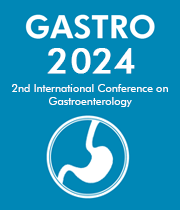Title : Significance of faecal immunochemical test and its range in patients with per rectal bleeding
Abstract:
Aim:
-
To analyse the positive/negative predictive values of Q Fit test, when diagnosing colorectal cancer in patients who are referred with per rectal bleeding to a Colorectal outpatient clinic in NHS Grampian.
-
To establish that Q Fit test is relevant as a first line investigation in ruling out Colorectal cancer in patients referred with Rectal bleeding alongside other lower GI symptoms.
Method:
This was a retrospective double-blind study from May 2022 till September 2023 of 207 patients, presenting with symptoms of Colorectal cancer. Patient sample was from the clinic appointments with 1 colorectal consultant. All the patients referred from primary care with suspected CRC on an urgent 2- week- wait pathway. A FIT test was performed on all the patients. Diagnosis established via MRI, CT scan, CT Colonoscopies and Lowe GI Colonoscopies subsequently, as per indication, confirmed with histopathology.
The primary outcome measure was the sensitivity of the FIT for CRC in patients with RB versus non rectal bleeding symptoms (NRB). The secondary outcome measures included the diagnostic yield of the FIT across different ranges for CRC and other serious bowel diseases in patients presented with PR bleeding vs patients presenting without PR bleeding.
Results: Of the 204 patients:
1. Patients presented with PR bleeding 77
- PR Bleeding & Qfit +ve = 53. (Cancer +ve = 4, Significant Bowel Pathology +ve =34)
- PR Bleeding & Q Fit –ve = 24 (Cancer +ve= 0, Significant Bowel Pathology +ve = 13)
2. Patients presenting with other Bowel Symptoms 127
- Qfit +ve = 88, Cancer +ve =13, Significant Bowel Pathology = 50
- QFit –ve =39, Cancer +ve =1, Significant Bowel Pathology = 13
Conclusion:
Faecal haemoglobin is not always detectable in patients with RB. This can be explained by sporadic RB in both significant and nonsignificant bowel disease. Moreover, bleeding from an anorectal source will most likely coat the outside of the stool sample and may not be distributed throughout the bulk of the stool from where a stool sample for Q Fit testing is obtained. In our study; 31.2% of patients had undetectable f- Hb (<2 µg/g) and CRC was present in 0%. The high sensitivity of the FIT can be used to rule out CRC in patients with RB and triage them more appropriately for further investigations. The sensitivity of Q Fit test increases for both patient subgroups at a high range i.e > 400.
Patients with PR bleeding and -ve Q Fit test except those with symptomatic anaemia or palpable mass can be offered flexible sigmoidoscopy/ examination under anaesthesia initially as sigmoid, rectosigmoid and rectal pathologies are the commonest cause of PR bleeding in these patients.
What does this paper add to the literature:
As per this study, faecal haemoglobin is undetectable in 31.2% of patients with rectal bleeding. The faecal immunochemical test ruled out colorectal cancer (CRC) in almost 100% of patients presented with rectal bleeding alongside other bowl symptoms. In patients with rectal bleeding and undetectable f- Hb the use of flexible sigmoidoscopy would reduce the probability of undetected CRC and will identify most benign pathologies, thus reducing the burden on Endoscopy and Radiology units.
Audience Take Away:
-
Better understanding of the potential of Q Fit test in diagnosing Colorectal pathologies, especially cancer in patients presenting with different lower GI symptoms.
-
Doctors, especially Colorectal Surgeons, can use this research for efficient and evidence-based practice.
-
This research provides a practical solution to the fundamental problem of overburdening the Endoscopy and radiology units for diagnostic investigation for Colorectal Cancers.



